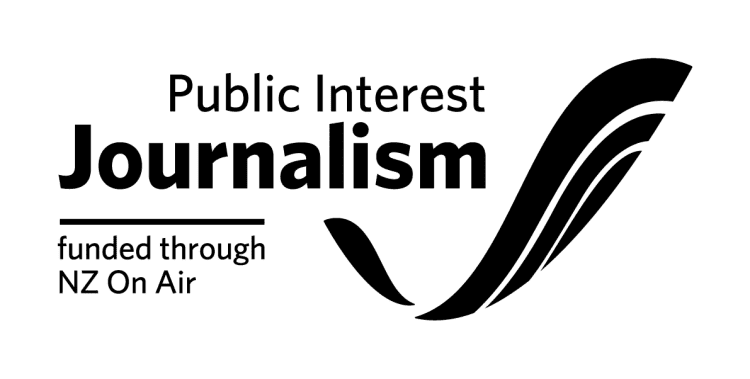
Firing off thousands of emails to the parliamentary committee considering a replacement for the RMA has safeguarded the pursuits of many Kiwis in the great outdoors
Game-bird hunters and anglers have rallied to prevent their sports being set on a slippery slope to extinction.
A proposed new law to replace the Resource Management Act (RMA), the Natural and Built Environment Bill, would have affected both introduced and indigenous fish and bird species and hampered conservation work, Fish and Game says.
Corina Jordan, chief executive of the organisation that issues hunting and fishing licences, believes a “disconnect” between Wellington decision-makers and the public led both to the ditching of protection for trout and salmon and also the loss of recognition of what the sports mean to Kiwis.
“It would have been a significant blow and would have sent a strong societal message against hunting and fishing,” Jordan says.
“It removed Fish and Game’s ability to be effective in any conversations regarding habitat. We were looking down the barrel of essentially gutting the organisation.”
An “ecological integrity” concept being followed had ignored the presence of humans, human impact, introduced species and climate change.
Such an outcome was unattainable and and would have caused confusion if included in the new law, she says.
The Bill has since been modified.
Colonial legacy
Fish and Game takes a “health” approach that recognises humans are part of the environment and that it is modified, Jordan says.
As originally proposed in the new legislation, introduced species would have dropped in status, eventually becoming “akin to pest species” with no protection from development or other activity that might infringe on their habitat or populations.
Trout and salmon were introduced to New Zealand by British settlers in the late 1800s.
Many species were released yet only three established themselves well enough to form important fisheries – brown trout, rainbow trout and Chinook salmon.
Their protection, Jordan says, safeguards the work the organisation is able to do in protecting the habitat of all freshwater fish.
In the few areas where trout predated on native species – such as non-migratory galaxiids in Otago – Fish and Game worked with regional authorities to manage those situations.
“Trout and salmon have some of the highest freshwater-quality and quantity requirements of our freshwater species.
“This has enabled Fish and Game to argue for water quality and quantity standards that have protected not just the species under our jurisdiction, but all freshwater species.”

The same could apply to introduced game birds such as mallards that are a mainstay of duck hunters.
When Canada geese were removed from Fish and Game’s control, mainly as an agricultural pest, free-for-all hunting resulted in lead shot – a pollutant – being used over waterways.
“You get periods where they do massive culls with a lot of bodies floating. It’s pretty horrific.”
Jordan says a healthy habitat benefits all species so Fish and Game’s main role is habitat management, protection and restoration.
Cultural context
The Natural and Built Environment Bill is intended both to regulate environmental management and land-use planning and also to set limits and targets for development.
In regard to hunting and fishing, it had appeared to recognise cultural values – which Jordan says is entirely appropriate – but only specific to mana whenua, not the wider population.
The focus was on indigenous fish and bird species that are already protected by Fish and Game alongside introduced species such as trout and salmon. Conservation projects are funded through licence fees paid by anglers and hunters, who also do a lot of the work.
Indigenous and introduced species are the focus of wetland restoration, population monitoring, compliance and advocacy and research work undertaken by the non-profit organisation.
Eleventh-hour pushback late last month resulted in Parliament’s environment select committee reinstating recognition of trout and salmon as valued species and the importance of the sports to Kiwis.
“Our licence-holders deserve a lot of credit for taking the time to make their voices heard.
“Almost 12,000 people visited Fish and Game’s Our Future website and nearly 3500 sent emails outlining their concerns to the government and MPs.”
Jordan, a freshwater ecologist with a planning background, believes the country’s strongest conservationists are hunters and anglers.
“Those are the individuals who spend the most time in those environments.
“They are intimately connected with those environments to the point where they can go and survive in them for periods of time and they pass that knowledge on to their families.”
Troubled waters remain
Concerns remain, however, over some aspects of the replacement legislation.
Jordan would like to see the wording tweaked to specify protection of indigenous species’ habitat as it relates to introduced species’ habitat, so Fish and Game gets a seat at the table when decisions are made affecting relevant waterways.
“Species should be managed in the biodiversity space.
“We are still worried that at the regional level councils are going to classify salmonids [trout and salmon] as pests and still try to eradicate them.
“We’re seeing that come through some regional plans. Greater Wellington is one example and there are challenges in Otago, too.”
She says the organisation wants regional councils to be required to consult Fish and Game in river management and setting water-quality and quantity limits as they impinge on habitat management.
Clarity is required, too, in how regional and local authorities will have to rule on “environmental bottom lines” in their future decision-making, but Jordan doubts there’s scope now for those bigger issues.
“We think the select committee has done an amazing job in the timeframe it has but the timeframe was simply unrealistic. If it’s landed poorly it’s not going to fix the environment quickly.
“This is important for our future generations.”
Green Party MP and committee chair Eugenie Sage told Newsroom she is pleased given the role Fish and Game has in advocating for river flows that there is now recognition in the proposed law for trout and salmon.
She believes the new wording gives adequate protection.
“Under the RMA the habitat of trout and salmon is a matter of national importance and it is appropriate that there be a similar outcome in the new legislation because it does provide a hook for Fish and Game to continue to advocate strongly for healthy rivers.”
She says nearly 3000 submissions were received on the Bill and a number of changes made.
Further changes are possible but only at the committee stage, would have to be “quite significant” and would need Environment Minister David Parker’s support.
A spokesperson for the minister says the original Bill did not mention the protection of habitat for trout and salmon as it was felt that was already covered by the national policy statement for freshwater management, but the revised Bill does.
These policies will be “carried forward” to the national planning framework under the new Act.
This is in addition to the updating of wording by the select committee regarding the protection of trout and salmon habitat in response to the concerns of Fish and Game and others.
A new provision from the select committee about maintaining and enhancing public recreational use of the natural environment will also be added.
The spokesperson confirms the minister will consider Fish and Game’s request for wording changes.
Made with the support of the Public Interest Journalism Fund








